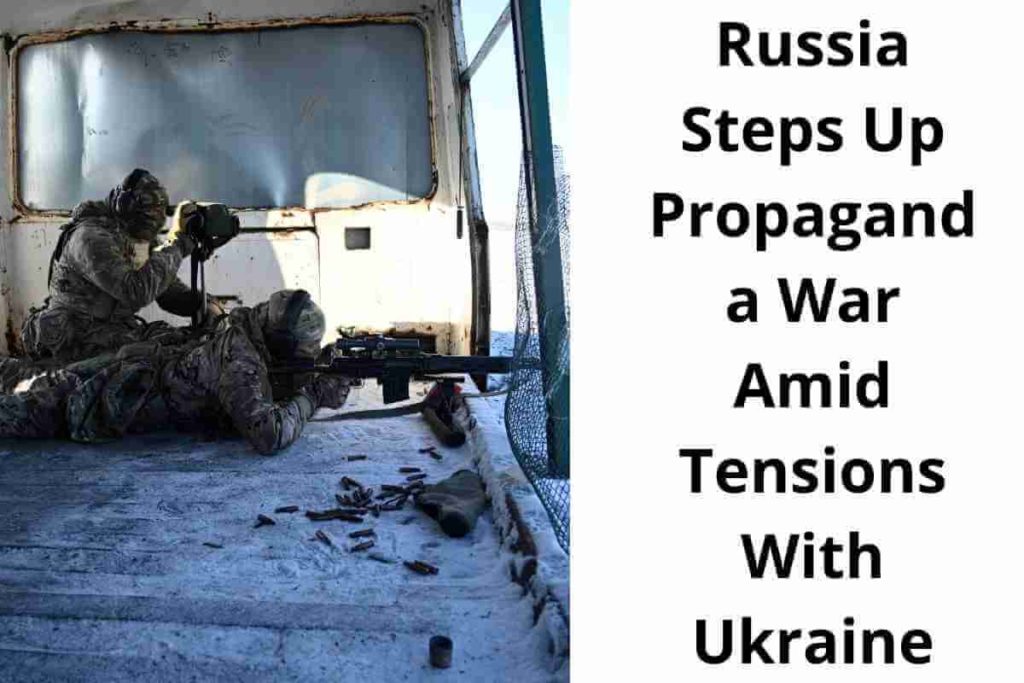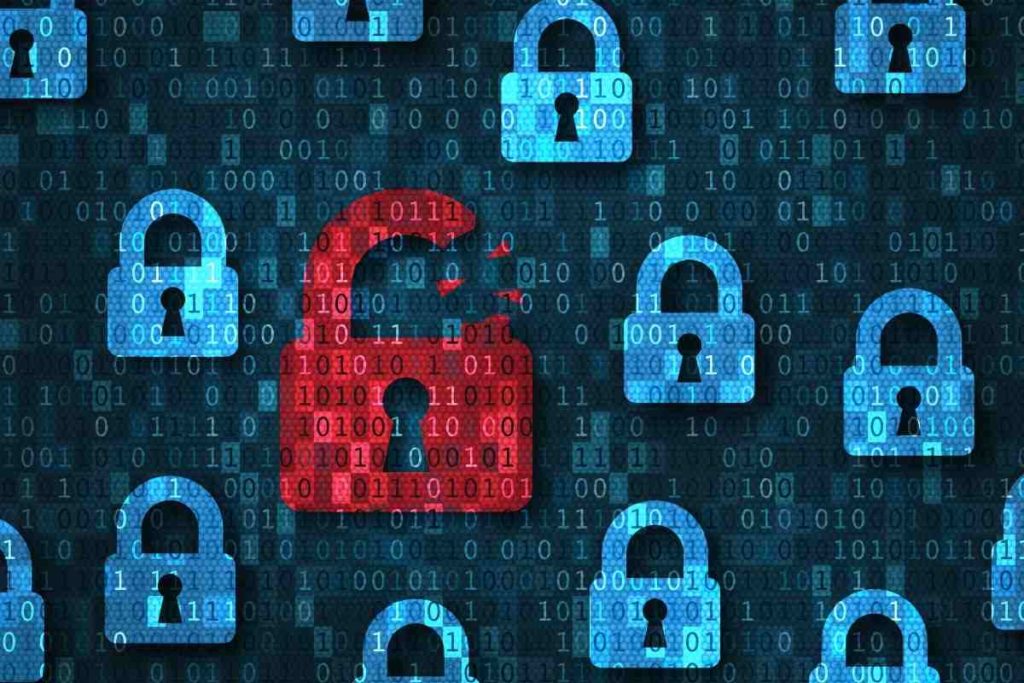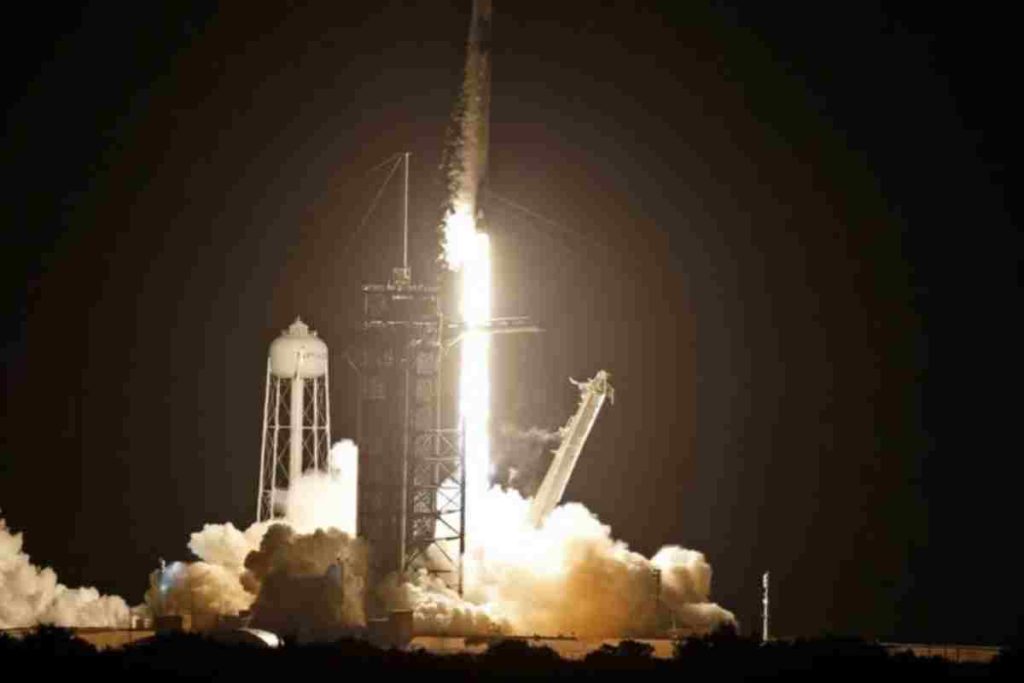UNITED STATES OF AMERICA, WASHINGTON, D.C. — Researchers discovered an increase in social media posts accusing Ukraine of orchestrating genocide against ethnic Russians after the U.S. issued warnings last month about Russian forces on Ukraine’s borders and President Biden threatened President Vladimir V. Putin with sanctions if he launched an invasion.
Footage showing Russian President Vladimir Putin claiming that events in eastern Ukraine “resemble genocide” is one such example. The State Department has labeled News Front, a misinformation publication with ties to Russian intelligence services, as a misinformation publication with ties to Russian intelligence services. On December 13, News Front published a story claiming that the atrocities were not considered genocide by the U.S.
According to researchers, Moscow and its online army of allies have pushed aside old arguments about western Ukrainians being Nazi sympathizers, falsely accused the U.S. of using proxy forces to plot a chemical attack, and claimed that Russia’s planned military operations were meant to protect ethnic Russians or preempt NATO action in the months since the Russian troop buildup began.
According to American intelligence sources, Russia has been spreading misinformation about Ukraine since 2014. They did see a jump in December and January when Moscow increased pressure on Kyiv’s government.
Logically, a British firm that helps governments and companies battle misinformation has been following Russian-aligned social media accounts, such as those of R.T. and Sputnik, as well as Russian officials’ Twitter accounts. According to Logically, the number of postings and articles condemning certain Ukrainians of being neo-Nazis has surged dramatically since early November. According to the company, the Russian-backed media campaign accusing the U.S. of plotting a chemical strike peaked on December 21.
Much of the propaganda is aimed at a local Russian audience as well as pro-Moscow Ukrainians, said Brian Murphy, vice president of strategic operations at Logically. He claims that if Russia invades Ukraine, it wants to guarantee that the country’s Russian speakers back it while tanks and artillery sweep through fields and smash houses.
Mr. Murphy noted, “In Ukraine, there are very few fence-sitters remaining.” “They’re aiming to strengthen support both inside Russia and in separatist-controlled parts of Ukraine.”
On the other hand, propaganda may easily travel beyond a Russian-speaking audience.
While Russia’s rhetoric is unlikely to sway many Europeans, it has found momentum in South America and Africa, according to intelligence sources, muddying the waters about who is to blame for the Ukraine crisis.
Mr. Murphy believes Russia is aiming to increase division in Ukraine in order to gain a tactical advantage, comparable to its attempts in 2016 to split the American public by stoking debates about racism, guns, and other controversial topics.
According to a fact sheet released by the State Department last week, much of the disinformation repeated old themes like portraying Russia as a victim of U.S. actions, Western societies as on the verge of collapse because they have moved away from traditional values, and Washington as a supporter of regional revolutions.
The number of tweets stating that NATO and Ukrainian troops are plotting an assault on Russian speakers in Ukraine has increased, according to researchers. Allegations of a NATO involvement in Ukraine peaked in late December, according to Logically, before rising further in mid-January.
Moscow has long claimed NATO intervention in Ukraine as a regular line of attack, according to Mr. Murphy, the former chief of the Department of Homeland Security’s intelligence department.
While pinpointing the source of an individual piece of disinformation is hard, analysts can identify when a lot of Russian accounts begin to spread the same message.
“It looks to be a concerted effort,” Mr. Murphy added. “They come out with similar messages around the same time.”
The initial report that the U.S. was contemplating a chemical attack came from Russia’s military minister. Experts in disinformation, on the other hand, looked at how various stories aided it.
Versions of the statement were recirculated by both state-owned media and websites that the U.S. government has said are used by Russian intelligence services, such as News Front and the Strategic Culture Foundation, according to Bret Schafer, the head of the information manipulation team at the Alliance for Securing Democracy, which tracks disinformation and other efforts aimed at undermining democratic governments. He believed the postings were coming at a strange time.
American authorities hypothesized a few weeks after the messages were published in December that a Russian-led false flag operation might be used as a pretext to deploy forces into Ukraine under the pretense of protecting the Russian-speaking minority.
Mr. Schafer believes the Russian contacts last month were an effort to muddy the waters ahead of their own planned action. “Or, to put it another way, accusing others of what you yourself have done.”
According to Larissa Doroshenko, a scholar at Northeastern University, Russian disinformation methods in Ukraine employed both fake and factual articles that were peripheral to current events to alter narratives and mask true motives.
During Ukraine’s pro-democracy rallies in 2014, Dr. Doroshenko researched Russian misinformation and revealed that Moscow utilized a range of strategies to promote narratives.
“We focus on social media,” she stated, “but it’s a multiplatform approach.” “It’s social media,” the author argues, “but it’s also these so-called news websites, these propaganda websites.”
According to Dr. Doroshenko, Mr. Putin slipped into Crimea. On the other side, the troop buildup near Ukraine has been far from secret.
She believes Russia’s troop deployments and threats against Ukraine are as much about stoking nationalistic feelings as they are about muting domestic criticism of Mr. Putin’s efforts to shut down non-profits like Memorial International and groups linked to Russian opposition leader Aleksei A. Navalny.
If an external adversary can be formed, “all these concerns of what is happening with civic society in Russia are not as relevant anymore,” she remarked.
Follow us on Twitter
Also, Read Families Call for Justice After 3 Women Killed in Violent Crimes in Recent Days





